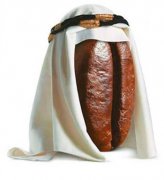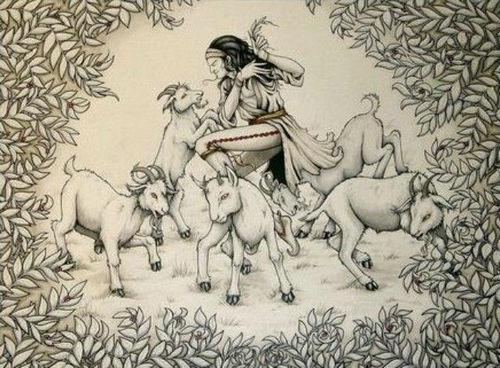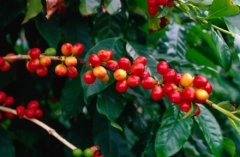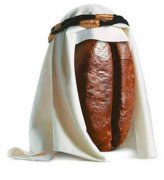or Arabia Learn more about or Arabia
-
Coffee beans from Arabia are the first people to discover that coffee beans can be soaked in water.

Coffee beans are not used to make coffee at first, because coffee beans are very high in calories. At first, people eat with their most common fruits on the spot, and they don't think about soaking them in water or anything. In Arabia, there are a lot of coffee beans, because Arabs like to do business everywhere. Coffee beans are not used to make coffee at first, because coffee beans are high in calories.
2015-08-12 From Arab coffee beans first found coffee beans can soak water -
Costa Rica Day Saudi Arabia Manor Honey treated Coffee Flavor and Taste description

Professional barista exchanges please follow the coffee workshop (Wechat official account cafe_style) ■ country: Costa Rica ■ Manor: day Saudi Arabia Manor ■ production area: central Valley Central Valley, San Isidro de Heredia ■ treatment: honey treatment ■ harvest time: 2014 arrival ■ varieties: Caturra, Catuai ■ appearance: 17-18screen ■
2017-09-04 Costa Rica Saudi Arabia Manor processing Coffee Flavor taste aroma -
Costa Rica Day Saudi Arabia Manor Honey treatment Flavor, taste and aroma description

Professional barista exchanges please follow the coffee workshop (Wechat official account cafe_style) ■ country: Costa Rica ■ Manor: day Saudi Arabia Manor ■ production area: central Valley Central Valley, San Isidro de Heredia ■ treatment: honey treatment ■ harvest time: 2014 arrival ■ varieties: Caturra, Catuai ■ appearance: 17-18screen ■
2017-09-05 Costa Rica Saudi Arabia Manor processing Flavor Taste aroma description -
Coffee Originated from Ethiopia or Arabia Brand Features Flavor Taste Introduction

Ethiopian coffee is still divided into two categories: wild coffee and artificial coffee. Wild to the southwest of the season horse area dominated by low harvest. The yield of coffee beans per hectare on artificial plantations is 500600 kg. According to statistics, Ethiopia now has more than 400,000 hectares of coffee gardens, mainly distributed in the season.
2016-11-11 coffee origin ethiopian or arabic type brand characteristics wind -
The Development of Coffee and the Promotion of Arabia, China and Turkey

The dietary use, cultivation and development of coffee in the Arab region are also related to Zheng he's voyages to the West in the early Ming Dynasty.
2014-06-12 Coffee Culture Coffee Development History China Turkey -
How was coffee introduced into Arabia? Arab Coffee Culture

How was coffee introduced into Arabia? European historians argue that as early as 800 years ago, there were artificial coffee trees for trade in Yemen in the southern Arabian Peninsula, and there was historical evidence that at that time, there was indeed trade across the Red Sea between Yemen and Ethiopia. Based on this, it is speculated that if the use of coffee is made by Ethiopia
2016-03-24 Coffee how imported Arab coffee culture coffee -
Coffee Culture Story how Coffee was introduced into Arabia

European historians argue that as early as 800 years ago, there were artificial coffee trees for trade in Yemen in the southern Arabian Peninsula, and there was historical evidence that at that time, there was indeed trade across the Red Sea between Yemen and Ethiopia. Based on this, people speculate that if the use of coffee was discovered by Ethiopians, then coffee
2014-10-14 Coffee knowledge coffee culture coffee history Arabia -
History of Coffee Culture the spread and Development of Coffee

European historians argue that as early as 800 years ago, there were artificial coffee trees for trade in Yemen in the southern Arabian Peninsula, and there was historical evidence that at that time, there was indeed trade across the Red Sea between Yemen and Ethiopia. Based on this, it is speculated that if the use of coffee was discovered by Ethiopians, then coffee
2014-11-05 Coffee culture coffee communication coffee development -
How was coffee introduced into Arabia?

European historians argue that as early as 800 years ago, there were artificial coffee trees for trade in Yemen in the southern Arabian Peninsula, and there was historical evidence that at that time, there was indeed trade across the Red Sea between Yemen and Ethiopia. Based on this, people speculate that if the use of coffee was discovered by Ethiopians, then coffee
2014-05-22 Coffee culture Arabian coffee -
How was coffee introduced into Arabia?

European historians argue that as early as 800 years ago, there were artificial coffee trees for trade in Yemen in the southern Arabian Peninsula, and there was historical evidence that at that time, there was indeed trade across the Red Sea between Yemen and Ethiopia. Based on this, people speculate that if the use of coffee was discovered by Ethiopians, then coffee
2016-10-11 Coffee how introduced Arab European historians say as early as 800 -
Yemeni mocha, the world's only full-time coffee producer, game mocha, Yemen mocha.

For more information on coffee beans, please follow Coffee Workshop (Wechat official account cafe_style) Yemen Mocha Coffee Yemen borders the Arabian Sea to the south with a coastline of 1906 km, Oman to the east and Saudi Arabia to the north, with a border length of 1746 km (288km with Oman and 1458 km with Saudi Arabia). Yemen is dominated by mountain plateaus.
2019-05-24 Yemen Mocha Global only Solar Coffee producing country Game Professional -
Coffee Common sense how did coffee come into Arabia?

European historians argue that as early as 800 years ago, there were artificial coffee trees for trade in Yemen in the southern Arabian Peninsula, and there was historical evidence that at that time, there was indeed trade across the Red Sea between Yemen and Ethiopia. Based on this, people speculate that if the use of coffee was discovered by Ethiopians, then coffee
2015-08-14 Coffee common sense how introduced Arab European historians say as early as -
Description and treatment of flavor and taste of El Salvador Pacamara boutique coffee

Pacamara is full of flavor, rich and changeable is rare in other varieties, for example, in addition to fruit and rich taste, but also with apricot, vanilla plants, tropical fruits, chocolate, sweet spices and other changes. But there is no better than one. Mature Pakamara coffee trees will show a gradual decline in yield or occasional unstable flavor, and have high requirements for soil, water and microclimate.
2017-03-01 El Salvador Parka Mara boutique coffee flavor taste description processing special -
How coffee was introduced into Arabia

There is no way to prove the myth, and so far there is no historical evidence to prove the exact time and reason why the coffee arrived in the Arabian Peninsula, but one thing is certain that Ethiopia did invade the southern tip of the Arabian Peninsula in 525. And ruled Yemen for half a century. As a result, people tend to believe that coffee was introduced into the Arabian Peninsula during this period. After that,
2016-05-29 Coffee how introduced Arabic mythology no way textual research and so far no -
How did coffee, the foundation of coffee culture, be introduced into Arabia?

European historians argue that as early as 800 years ago, there were artificial coffee trees for trade in Yemen in the southern Arabian Peninsula, and there was historical evidence that at that time, there was indeed trade across the Red Sea between Yemen and Ethiopia. Based on this, people speculate that if the use of coffee was discovered by Ethiopians, then coffee
2015-06-13 Coffee Culture Foundation Coffee how introduced Arab European historian on -
The planting and Distribution of Coffee trees in the World

Coffee is distributed near the equator, tropical and subtropical regions. It is widely distributed in South America, Central America, West Indies, Asia, Africa, Arabia, South Pacific and Oceania. Brazil leads the world in coffee production, accounting for about 30 per cent, followed by Colombia, accounting for about 10 per cent. Taking Central and South America as the center accounts for 60%, followed by Africa and Arabia accounting for about 30%, and the remaining 10%
2014-09-09 Coffee knowledge coffee tree planting coffee tree distribution -
Coffee beans were not used to make coffee at first.

Coffee beans are not used to make coffee at first, because coffee beans are very high in calories. At first, people eat with their most common fruits on the spot, and they don't think about soaking them in water or anything. In Arabia, there are a lot of coffee beans, because Arabs like to do business everywhere. Coffee beans are not used to make coffee at first, because coffee beans are high in calories.
2015-09-19 Coffee beans at first not to make coffee coffee beans to start not to do. -
Introduction to the taste of El Salvador Pacamara coffee flavor description method

When it comes to the Pakamara species in Saudi Arabia, we have to introduce Pacamara Manor first. In Ecuador in 1984, the fascists could buy the Pakamara Coffee Garden as the new owner. The Falesco family has been growing coffee in the Apaneca mountains since their grandparents for more than a hundred years. Urgado wanted to take a different path from his grandparents and decided to plant a new species that had just been developed by the agricultural technology unit of Saudi Arabia.
2016-10-20 El Salvador Paka Mala Coffee Flavor description treatment characteristics Variety production -
European Coffee History Coffee Culture how did Turkish Coffee Coffee come into Arabia?

European historians argue that as early as 800 years ago, there were artificial coffee trees for trade in Yemen in the southern Arabian Peninsula, and there was historical evidence that at that time, there was indeed trade across the Red Sea between Yemen and Ethiopia. Based on this, people speculate that if the use of coffee was discovered by Ethiopians, then coffee
2016-04-07 Europe Coffee History Coffee Culture Turkey how introduced Arab -
Introduction to Salvadoran coffee that needs to be washed

When it comes to the Pakamara species in Saudi Arabia, we have to introduce Pacamara Manor first. In Ecuador in 1984, the fascists could buy the Pakamara Coffee Garden as the new owner. The Falesco family has been growing coffee in the Apaneca mountains since their grandparents for more than a hundred years. Urgado wanted to take a different path from his grandparents and decided to plant a new species that had just been developed by the agricultural technology unit of Saudi Arabia.
2016-06-22 To wash treat El Salvador coffee introduction talk about sa Guo Palmer
